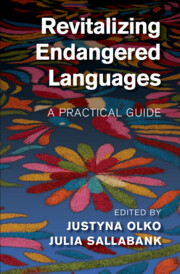Revitalizing Endangered Languages
Of the approximately 7,000 languages in the world, at least half may no longer be spoken by the end of the twenty-first century. Languages are endangered by a number of factors, including globalization, education policies, and the political, economic, and cultural marginalization of minority groups. This guidebook provides ideas and strategies, as well as some background, to help with the effective revitalization of endangered languages. It covers a broad scope of themes including effective planning, benefits, well-being, economic aspects, attitudes, and ideologies. The chapter authors have hands-on experience of language revitalization in many countries around the world, and each chapter includes a wealth of examples, such as case studies from specific languages and language areas. Clearly and accessibly written, it is suitable for nonspecialists as well as for academic researchers and students interested in language revitalization. This book is also available as Open Access on Cambridge Core.
Justyna Olko, director of the Center for Research and Practice in Cultural Continuity at the University of Warsaw, is engaged in revitalizing the Nahuatl language in Mexico and works with activists supporting other endangered languages, especially in the area of Poland. Her current research focuses on the relationship between heritage language use, health, and well-being. She is the author of Insignia of Rank in the Nahua World (2014) and coeditor of Integral Strategies for Language Revitalization (2016).
Julia Sallabank’s language revitalization work started with her heritage language, Guernesiais, in 2000, and spread worldwide. She teaches documentation and revitalization at the School of Oriental and African Studies (SOAS), University of London. She has written Attitudes to Endangered Languages (2013) and, with Peter Austin, Endangered Languages: Beliefs and Ideologies (2014) and the Cambridge Handbook of Endangered Languages (2011).



